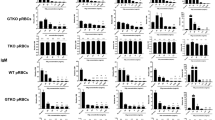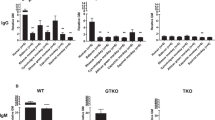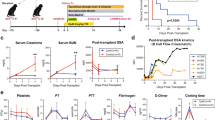Abstract
THE finding that allogeneic pig liver transplants frequently survive for a significantly prolonged period of time even without immunosuppression has led to a new line of research1,2. Calne and his colleagues have shown that the recipient of an allogeneic liver transplant showed partial tolerance towards kidney, and to a lesser extent towards skin transplants, when these were obtained from the same animal as was the liver.
This is a preview of subscription content, access via your institution
Access options
Subscribe to this journal
Receive 51 print issues and online access
$199.00 per year
only $3.90 per issue
Buy this article
- Purchase on SpringerLink
- Instant access to full article PDF
Prices may be subject to local taxes which are calculated during checkout
Similar content being viewed by others
References
Peacock, J. H., and Terblanche, J., The Liver, 333 (Butterworths, London, 1967).
Calne, R. Y., White, H. J. O., Yoffa, D. E., Maginn, R. R., Binns, R. M., Samuel, J. R., and Mollna, V. P., Brit. Med. J., 2, 478 (1967).
Calne, R. Y., Sells, R. A., Pena, J. R., Davis, D. R., Millard, P. R., Herbertson, B. M., Binns, R. M., and Davies, D. A., Nature, 223, 472 (1969).
Kissmeyer-Nielsen, F., and Kjerbye, K. E., Histocompatibility Testing, 381 (Munksgaard, Copenhagen, 1967).
Author information
Authors and Affiliations
Rights and permissions
About this article
Cite this article
VAN ROOD, J., VAN LEEUWEN, A. & VAN SANTEN, M. Anti HL-A2 Inhibitor in Normal Human Serum. Nature 226, 366–367 (1970). https://doi.org/10.1038/226366a0
Received:
Revised:
Issue Date:
DOI: https://doi.org/10.1038/226366a0



